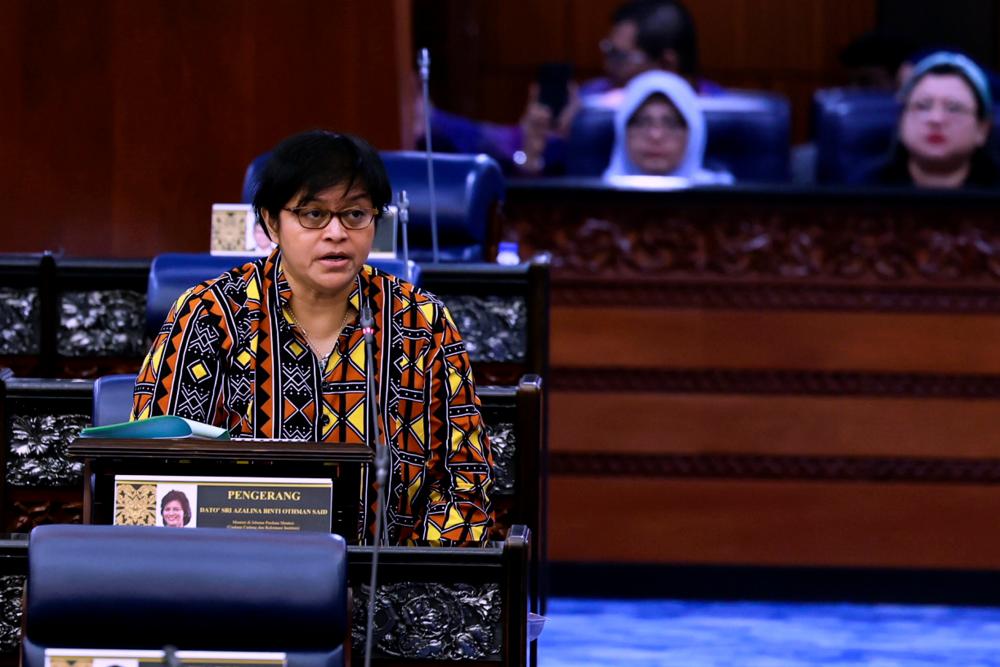KUALA LUMPUR: The proposed amendments to the Penal Code (Act 574) and the Criminal Procedure Code (Act 593) aimed at combatting online fraud related to mule accounts are expected to be tabled at the current Parliament session.
Minister in the Prime Minister’s Department (Law and Institutional Reform) Datuk Seri Azalina Othman Said said the amendments involve the creation of a new offence targeting individuals who permit their bank accounts to be unlawfully used by others for illegitimate purposes.
She said the proposed amendments would also empower investigating officers to seize bank accounts suspected of being involved in online fraud.
“The amendments are necessary as existing laws don’t provide for offences against bank account holders who allow their accounts to be used by others for illegal purposes, making it difficult for the police to block the movement of funds transferred into such accounts.
“Due to this legal gap and the urgent need to protect the public, the government is studying amendments to Act 574 and Act 593. These proposed amendments are expected to be tabled at this Parliament session after they have been considered by the Cabinet,” she said during the Minister’s Question Time in the Dewan Rakyat today.
She was responding to a question from RSN Rayer (PH-Jelutong) about the status of drafting legislation for offences related to mule accounts, and how it can address the alarming increase in online fraud cases.
Azalina further said that the proposed amendments, which would give police the authority to prevent the withdrawal or use of victims’ money in online fraud cases, would facilitate money tracing and provide a chance to return it to the victims.
According to her, the total losses from online fraud crimes between 2022 and June 2024 amounted to RM2,651,321,398.34.
“There has been a 43.2 per cent increase in losses, with the recorded amount in 2022 being RM851,121,636.62, followed by RM1,218,839,783,59 in 2023 and this year, RM581,359,978.13,” she said in reply to a supplementary question from Rayer.
Rayer wanted to know the total losses from fraud cases and whether the proposed amendments would ensure the return of the victims’ defrauded funds.
Regarding long-term efforts, Azalina said the government is working on a comprehensive law to address various aspects of online crimes, including financial fraud, manipulation of artificial intelligence technology, sexual crimes and deep fake methods.
She said the Working Committee on the Drafting of New Laws Related to Cybercrime, which she co-chairs with the Communications Minister and the Digital Minister, is refining these proposals.
“The working committee has met three times, on Feb 5, March 13 and May 14. We hope that if the Cabinet approves in principle, the newly drafted law can be tabled in the next Parliament session in October.
“The implementing agencies for this law will be the Communications Ministry and the Digital Ministry, subject to their jurisdiction,” she said.









